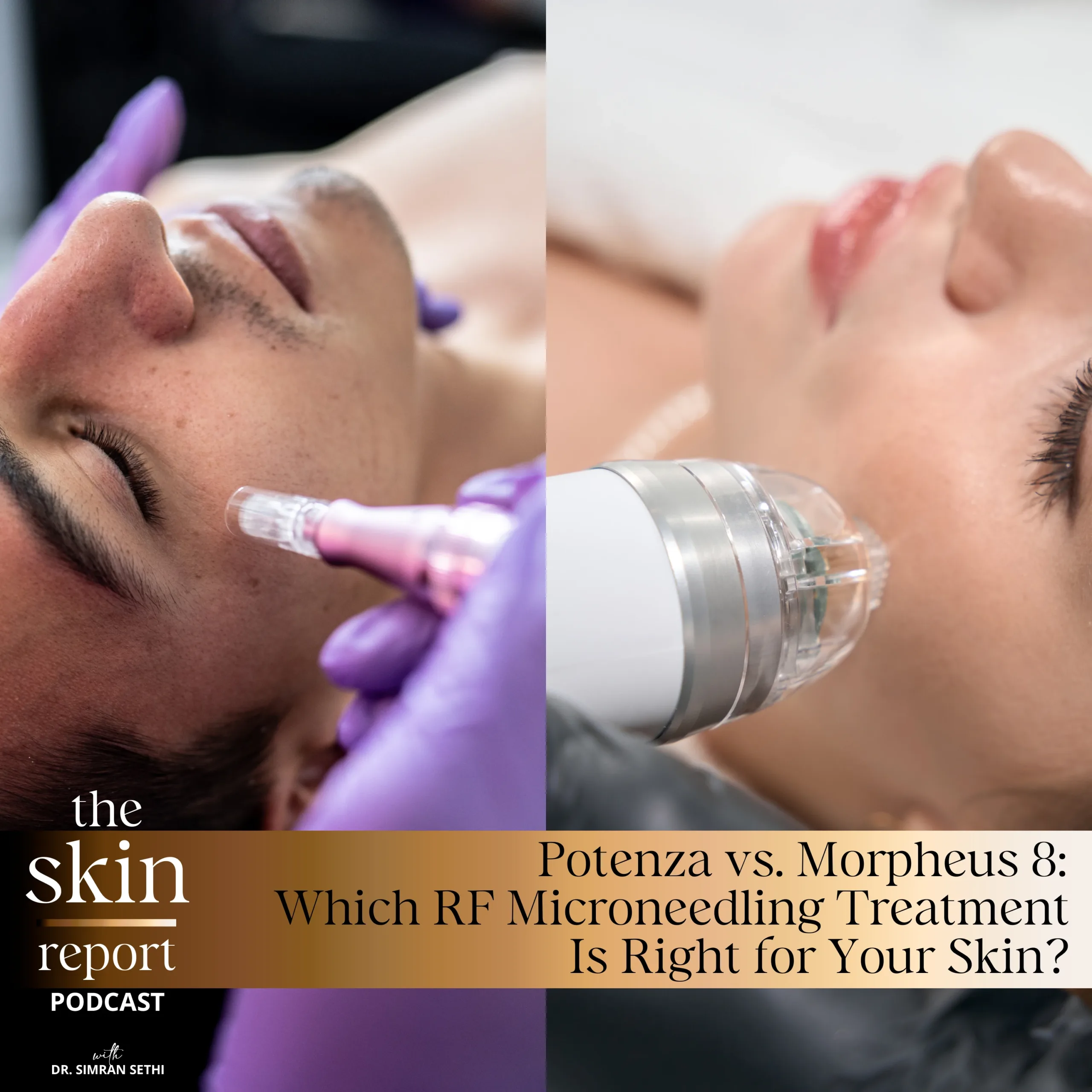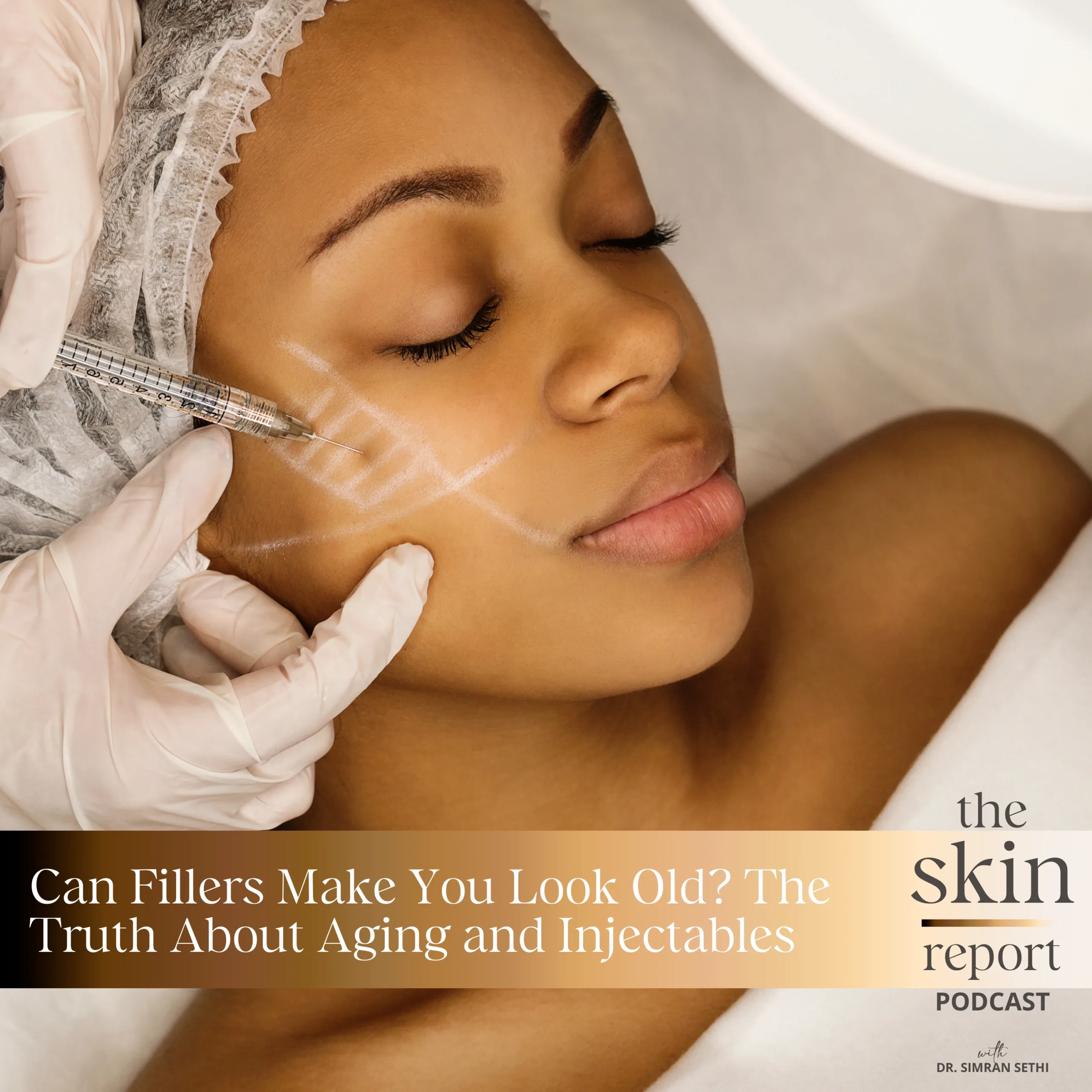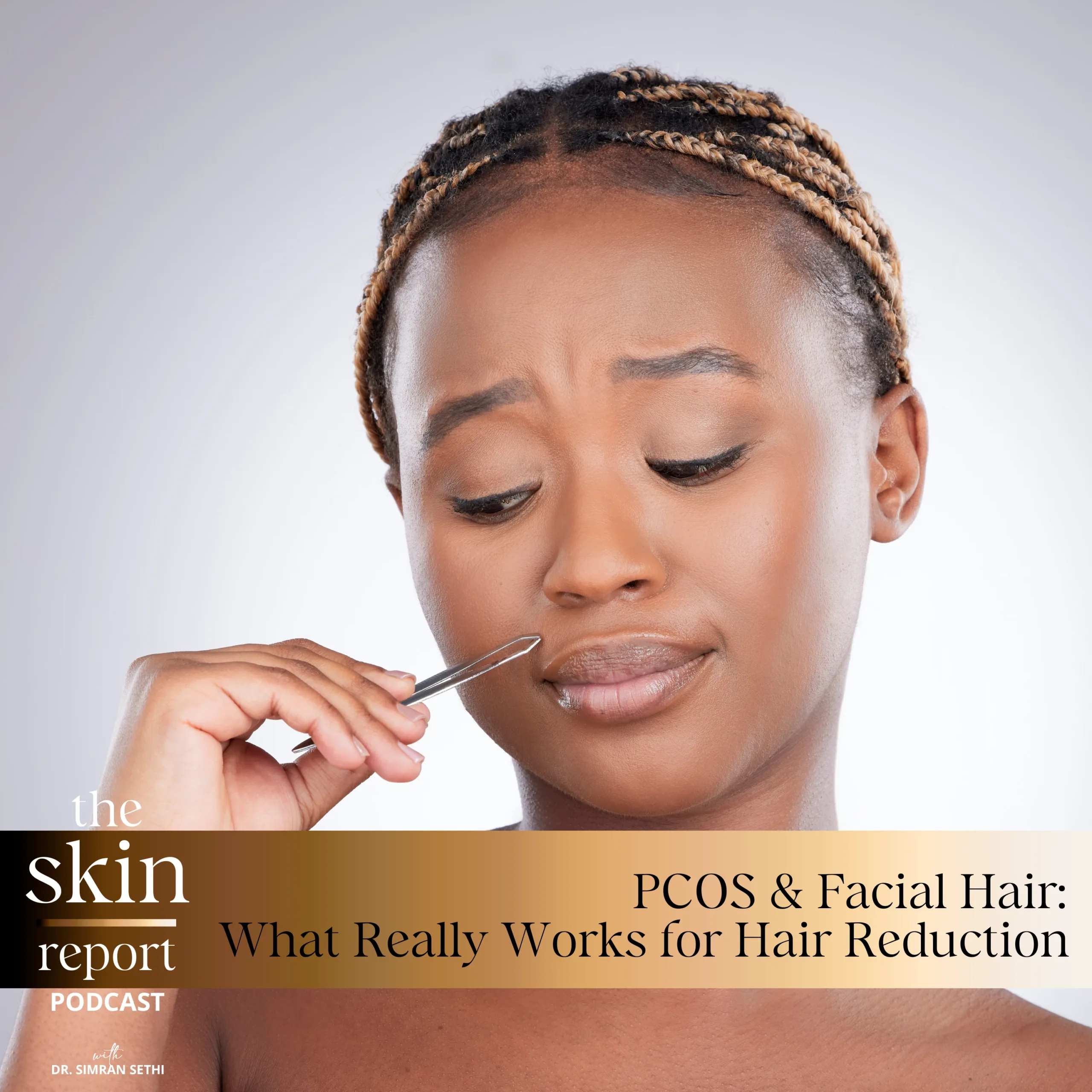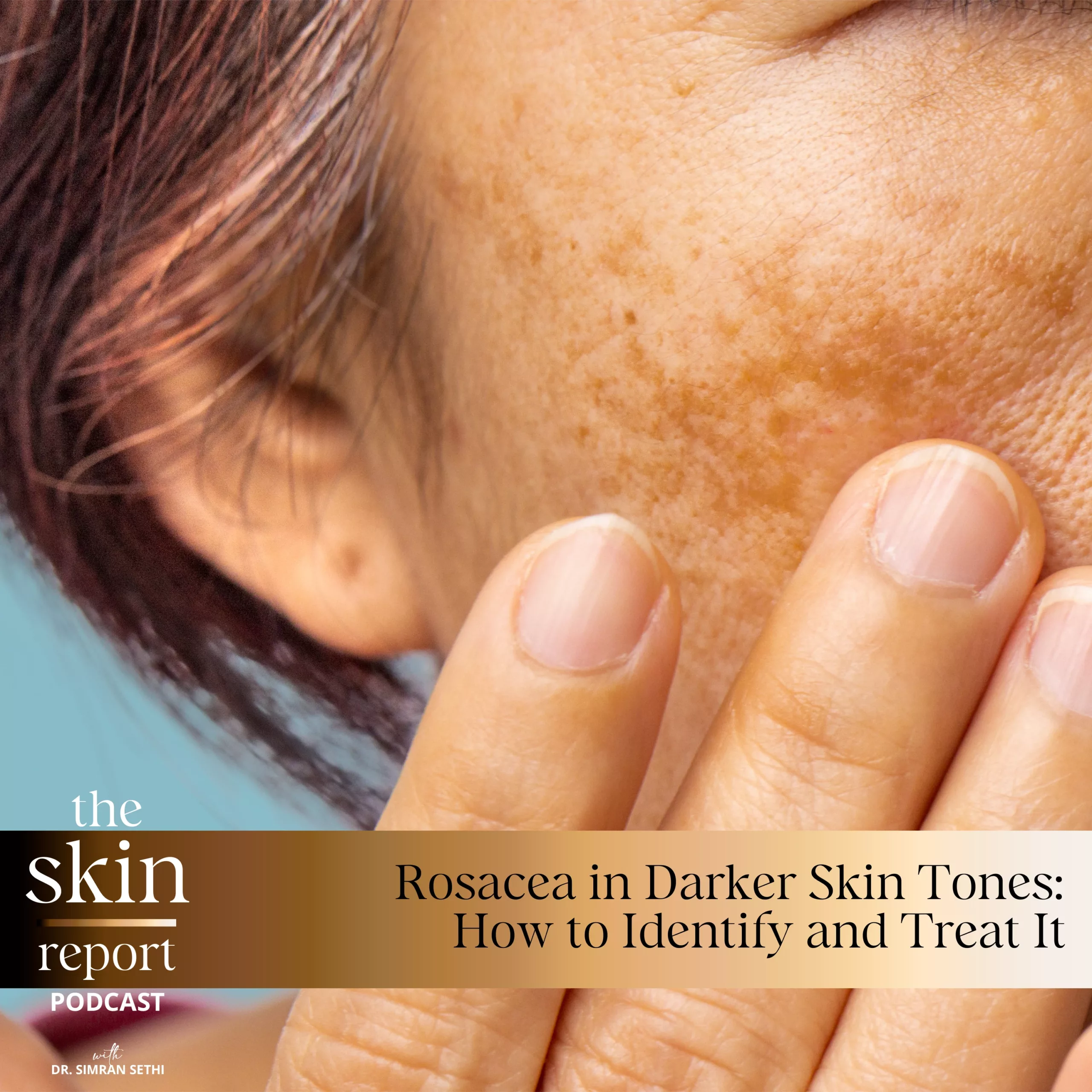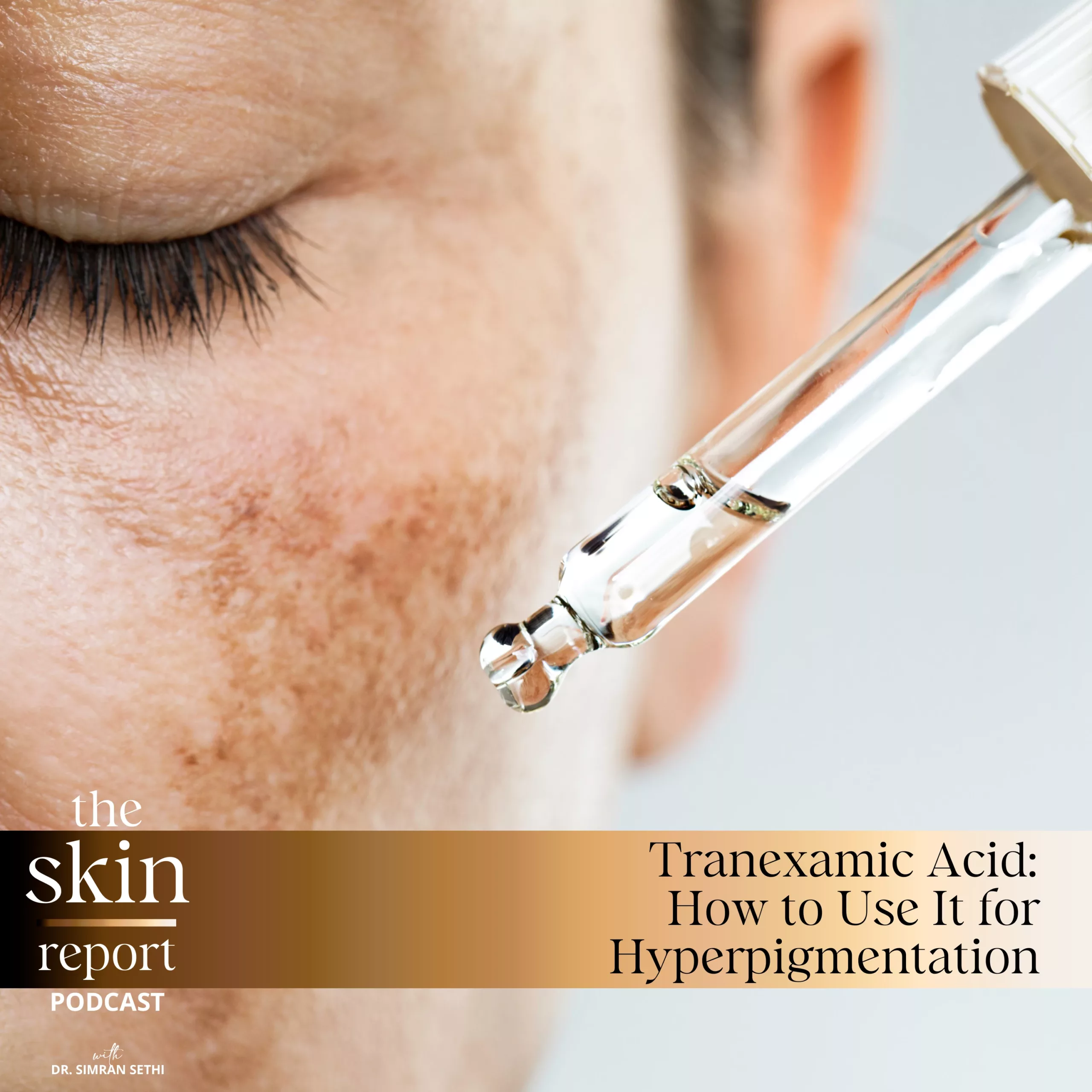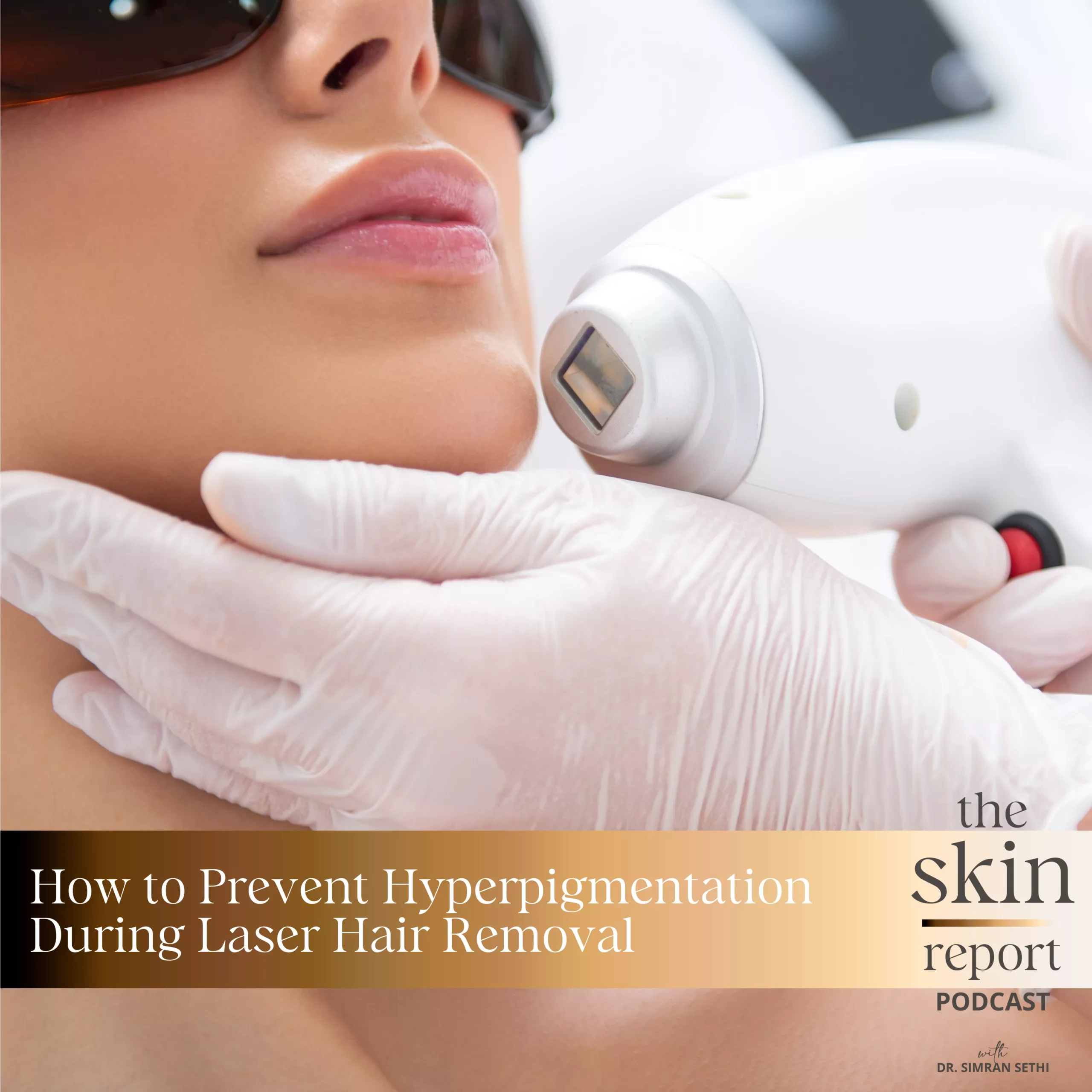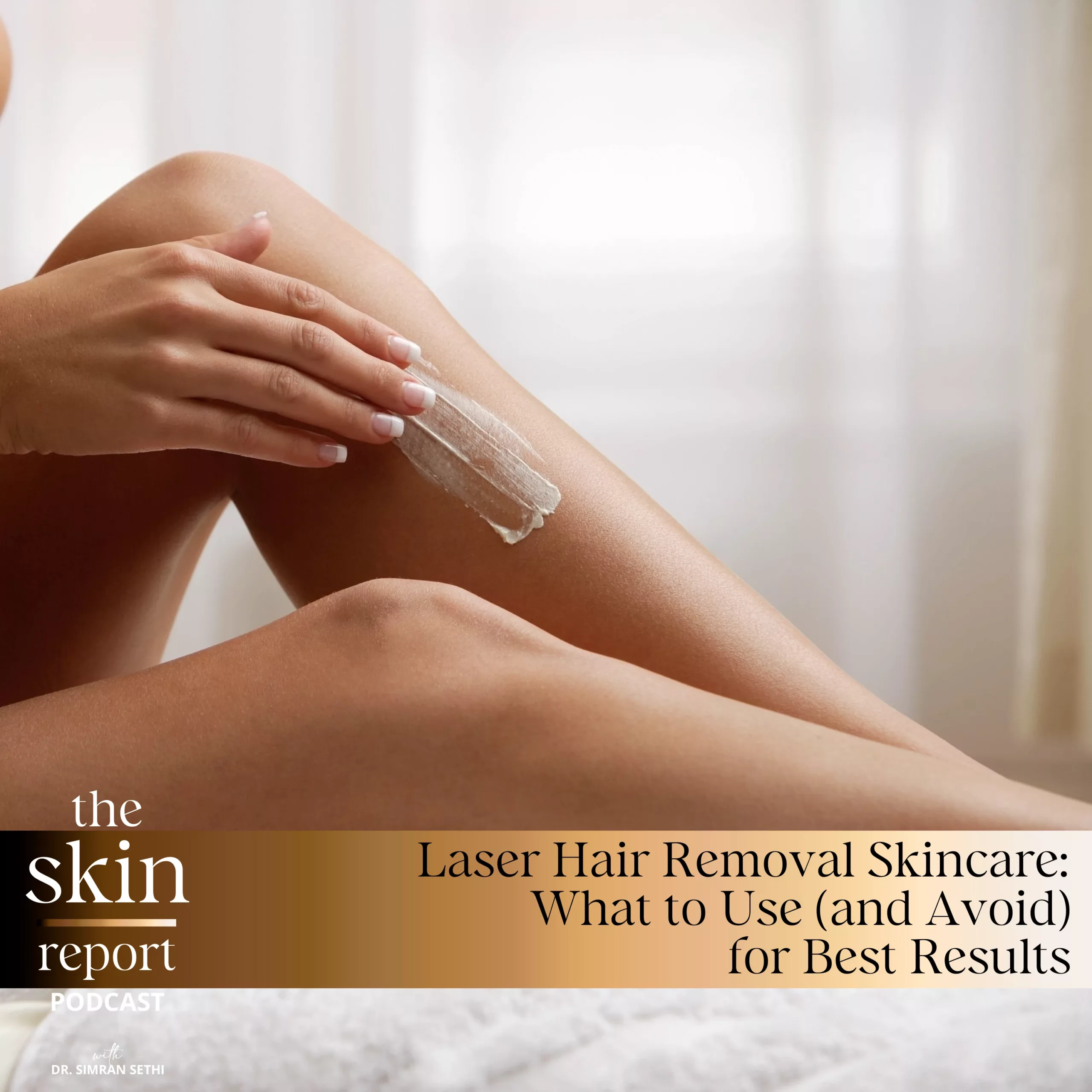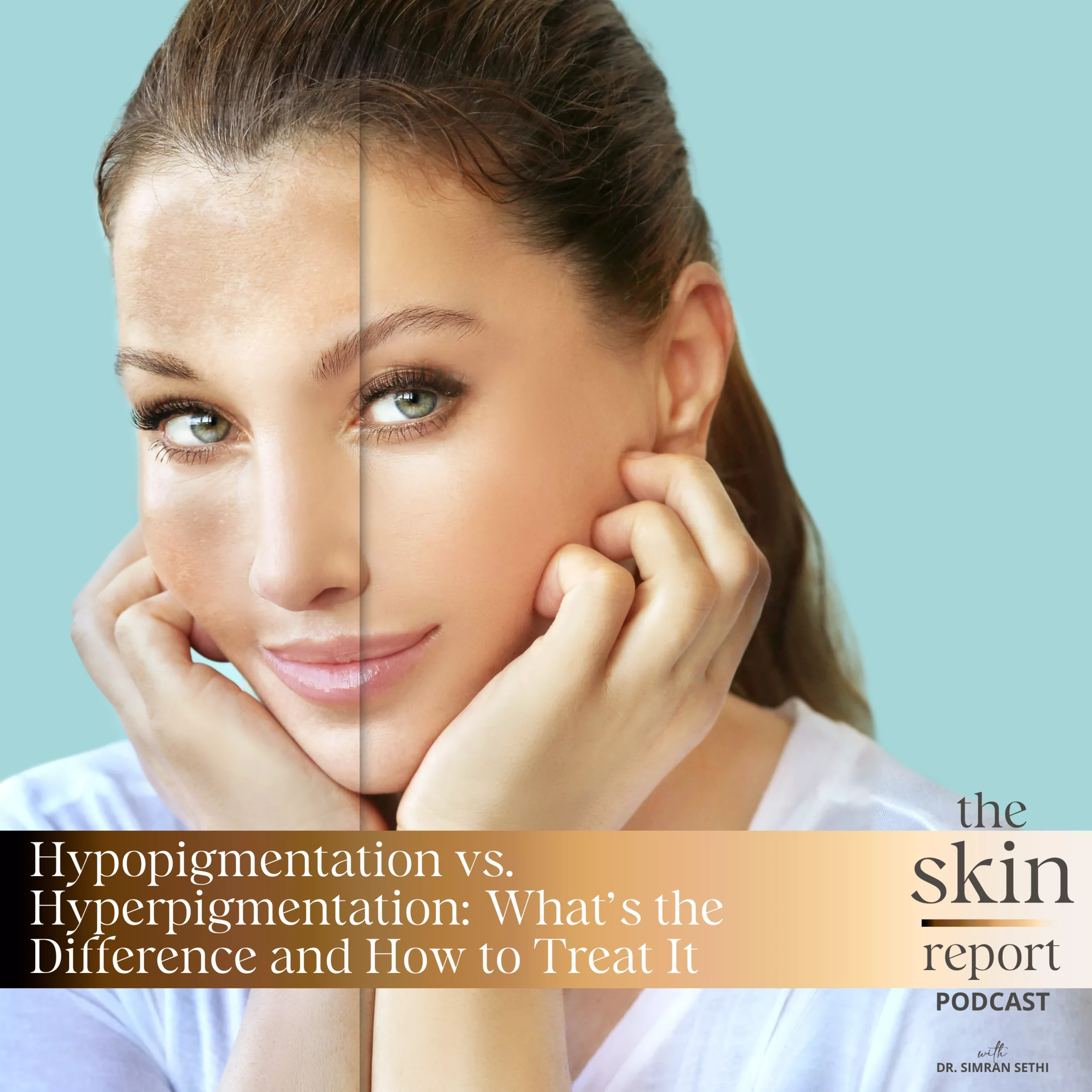Hello, everyone. Welcome to The Skin Report. Today we are going to talk about whether laser treatments work for melasma. We will cover briefly what melasma is as a refresher. I have a lot of videos that go in a little more depth into what melasma is from the clinical perspective. And what kind of treatments are available for melasma today, and whether lasers are an option. I will then actually give you the specific type of laser that is indicated for melasma, FDA approved for melasma in the United States. And then we will also go over what kind of skincare products you should definitely be on if you have melasma, because without that, you are not going to see any results, even if you get the best treatment.
I’m Dr. Simran Sethi. I’m a board-certified internal medicine doctor who specializes in medical aesthetics. Let’s get started with today’s topic.
So, what is melasma? Melasma is a condition that is most commonly found in women. It can occur in men, but most commonly it occurs in women, and it is a condition that causes increased pigmentation, which is usually in the cheeks, nose, upper lip, and forehead area. This increased pigmentation tends to occur at two points in a woman’s life, during or post-pregnancy, and that is, I would say, something that’s not as common as when women are getting closer to their perimenopausal years. So, that’s usually in the late 30s onwards.
Now, melasma, we know causes hyperpigmentation and there is some association with a person’s hormones, but what we don’t know about melasma is exactly how it’s caused, which makes it problematic because that’s also why we don’t have exact solutions for it. The other thing we know about melasma is that the hyperpigmentation worsens with exposure to heat and exposure to light, which is why if someone has melasma, it’s very important that they are really, really strict about their photoprotection, sunblock, generally staying out of the sun. So, that’s briefly what melasma is. I have other episodes where I’ve talked about melasma in more detail.
Now, let’s go into what are some treatments for melasma and are lasers an option? We don’t have any specific treatments for melasma that are heavy hitters, they’re just like, “Yes, this will definitely get rid of melasma,” because the problem is we can’t completely get rid of melasma. Melasma is causing some signal in the body that causes hyperpigmentation. What we can do is reduce the amount of pigment that’s depositing in melasma, and that’s kind of what our solutions are for. And the solution that I’m going to talk about today is lasers.
Lasers are a broad category of devices, and their job is to release light or heat. And I just told you earlier that melasma worsens with light or heat, which is why typically lasers have not been a solution for melasma. In fact, they would worsen melasma. Except, there is a solution that is available today called PicoSure Pro. PicoSure Pro is a picosecond laser that has been FDA approved for treatment of melasma. PicoSure is FDA approved for melasma because it delivers energy very, very fast, in such a way that it does not allow the skin to heat up and cause worsening of pigmentation.
The only trick here though, is that even with an excellent solution like a PicoSure Pro laser, sometimes you can have unexpected results, and the person doing the treatment, their experience with melasma is very, very relevant. So, with any kind of treatment in medical aesthetics, the device, it may be the perfect device for the solution, but the operator of that device is equally important and their experience. When you’re considering any kind of laser treatment for melasma, just remember there’s really only one, and that is PicoSure Pro. If somebody is recommending to you for melasma, fractionated lasers like Fraxel, or an IPL laser, or a carbon dioxide laser, that is not a safe treatment for melasma and it will worsen it. The only one you can use, picosecond PicoSure Pro, FDA approved, studied heavily.
Now, I’m going to go into what is going to optimize your results. So remember, with any kind of melasma treatment, we’re only reducing the amount of pigment you have. We are not taking away your signal to cause the pigment. So, what you do on a daily basis matters tremendously. It matters tremendously in medical aesthetics overall, but it definitely, definitely matters even more when you have melasma. So, I’m going to give you a list of some important skincare products that you absolutely have to have on hand if you are to see success.
Number one, have a nice vitamin C serum that you’re using on a daily basis, twice a day. Vitamin C gives you photoprotection. It also helps you build new collagen. It protects you from oxidative stress. So, it’s doing a lot. It’s really protecting your skin from breakdown from UV exposure. And in melasma, people have more accelerated skin aging than someone without melasma. So, vitamin C serum.
Second, make sure you’re on a retinol. Retinol increases skin cell turnover. So, this is getting back at anti-aging your skin. If you have weak, aged skin, which people with melasma have more accelerated skin aging, you are going to form more pigment and you are going to hold onto that pigment even longer. So, being on a retinol is a very important part of that daily routine, and retinols can only be used at night.
And then, third, give yourself blue light protection. And I know you’re thinking, “Okay, so just regular sunblock, right?” No, all sunblocks do not have blue light protection. So, blue light has been shown to cause hyperpigmentation in skin type 4s and greater, and people with melasma are typically skin type 4s and greater. So, if you are going to be wearing a sunblock, if you have melasma, which a lot of people know that, a lot of people with melasma know about sunblock, make sure that sunblock has blue light protection. And if it doesn’t specifically say that it does, then it doesn’t. So, you need to be on a sunblock that’s a physical sunblock with blue light protection. And a tinted sunblock will give you more blue light protection than an untinted one. So, just something to keep in mind.
We covered a lot about melasma and lasers. To summarize, Picosure Pro, FDA approved for treatment of melasma, but the operator’s experience matters, and your daily skincare routine definitely matters also. Please leave me any questions you have about melasma in the comments. Remember to subscribe, turn on your notifications, so that you know whenever we release new content.



